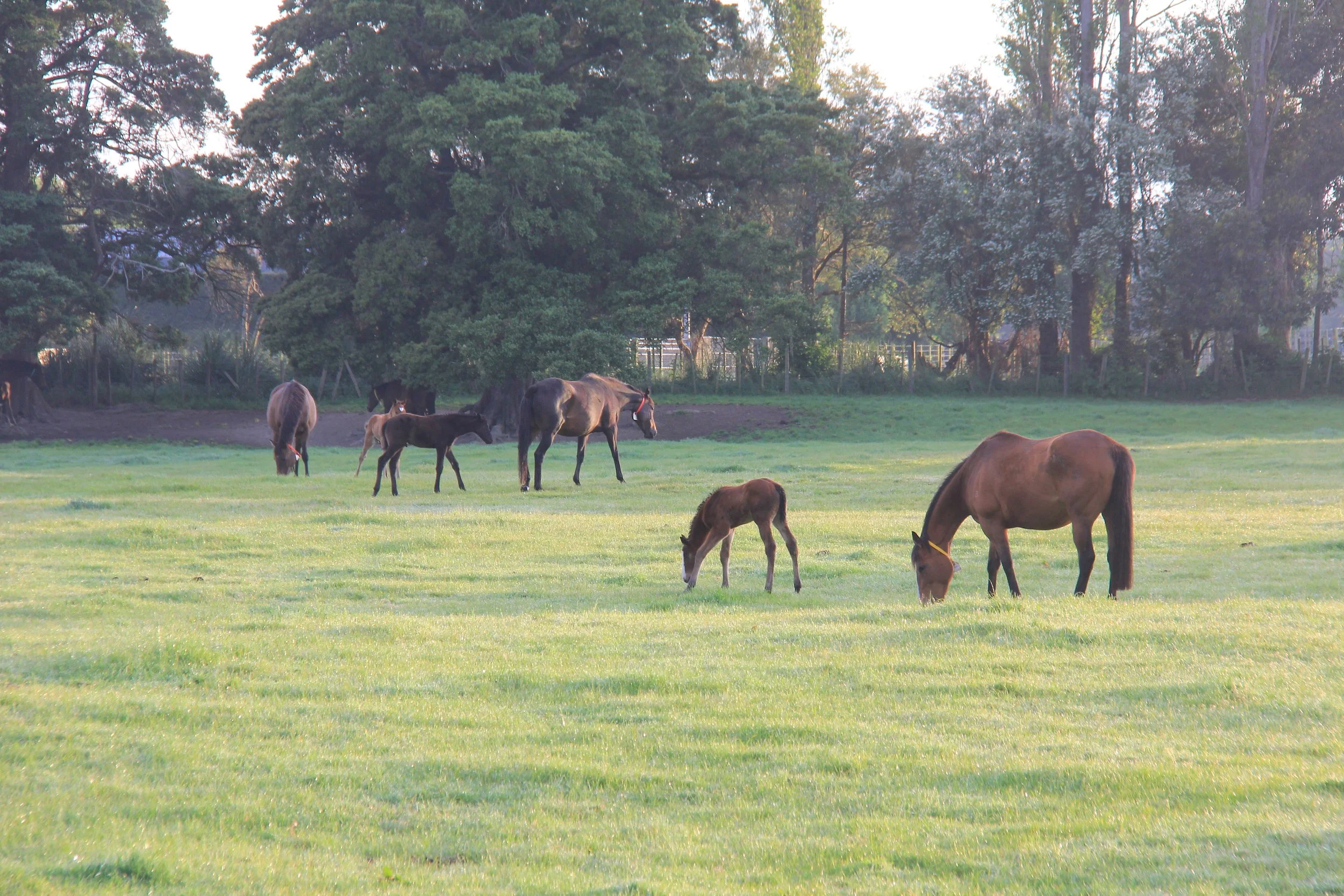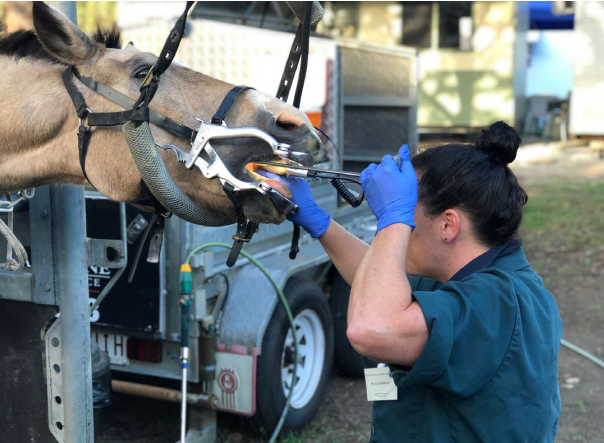
Dr Lucy Holdaway
Jonathan Hope Young Equine Veterinarian Scholarship 2018
TRAVEL REPORT: I was fortunate enough to be the recipient of the 2018 Jonathan Hope Equine Veterinarian Scholarship.
The funds allowed me to travel twice to Grafton, Australia to attend two veterinary dentistry courses run by Dr Oliver Liyou at his clinic, Equine Veterinary and Dental Services (EVDS). Dr Liyou is an outstanding veterinarian and person, and we are very lucky to have him on our doorstep.
The New Zealand equine veterinary industry has had a long association with him and the courses he runs have upskilled many NZ equine vets in the area of dentistry. The courses were at an intermediate to advanced level and covered diagnostic imaging, sedation and analgesia, many different extraction techniques and the many complications which can and do occur, sinus disease and of course dental disease and pathology.
The format was a mixture of lectures, cadaver and live horse work, and probably just as importantly, there was plenty of discussion throughout. The tutor to student ratio is 1:2 so you always have help and advice at hand from very knowledgeable and experienced international equine dental vets. The saying “the more you know, the more you know you don’t know” couldn’t ring more true for me after attending these courses.
Advances in equine dentistry have increased exponentially over the past couple of decades. There is new research being undertaken all of the time which allows for constant development of new techniques and equipment. Now there are many equine dental veterinarians globally who have done years of additional training to become registered specialists in equine dentistry. The equine mouth is vastly more complex than the majority of people who deal with horses could ever fathom.
Dental health and function is absolutely crucial to the overall health and longevity of equids and it involves so much more than just floating teeth. For optimum dental health to be even close to being accomplished the oral cavity needs a complete and thorough examination. This is achieved with a compliant (i.e. sedated) horse, full mouth speculum, flush, palpation AND visual examination with a strong light and oral mirror at an absolute minimum. Only then can dental disease be diagnosed and treated. As owners, trainers and riders of horses, it is up to you all to ensure the person you choose to provide dental care for your horses is ticking all the boxes.
While floating teeth is important for oral comfort and prevention of dental disease, there is much more to equine dentistry than just having a feel and filing teeth. There needs to be a shift in mindset whereby an ‘annual dental’ isn’t just about filing teeth, but is a comprehensive oral exam, providing treatments where needed which is likely to include floating (but not always).
Only about 20% of horses with dental disease will show clinical signs. The fact the horse is still eating does not mean that its mouth is comfortable. The EVDS workshops are very educational and inspiring. They attract many excellent veterinarians from all over the world as participants and as tutors. I have come back to NZ more driven than ever before to expand my knowledge and skills in equine dentistry, however mad my colleagues might think I am!
I would like to thank Dr Jonathan Hope and the NZERF for giving me the opportunity to attend these courses last year; I would not have been able to attend them without their help.


